Campus Spotlights
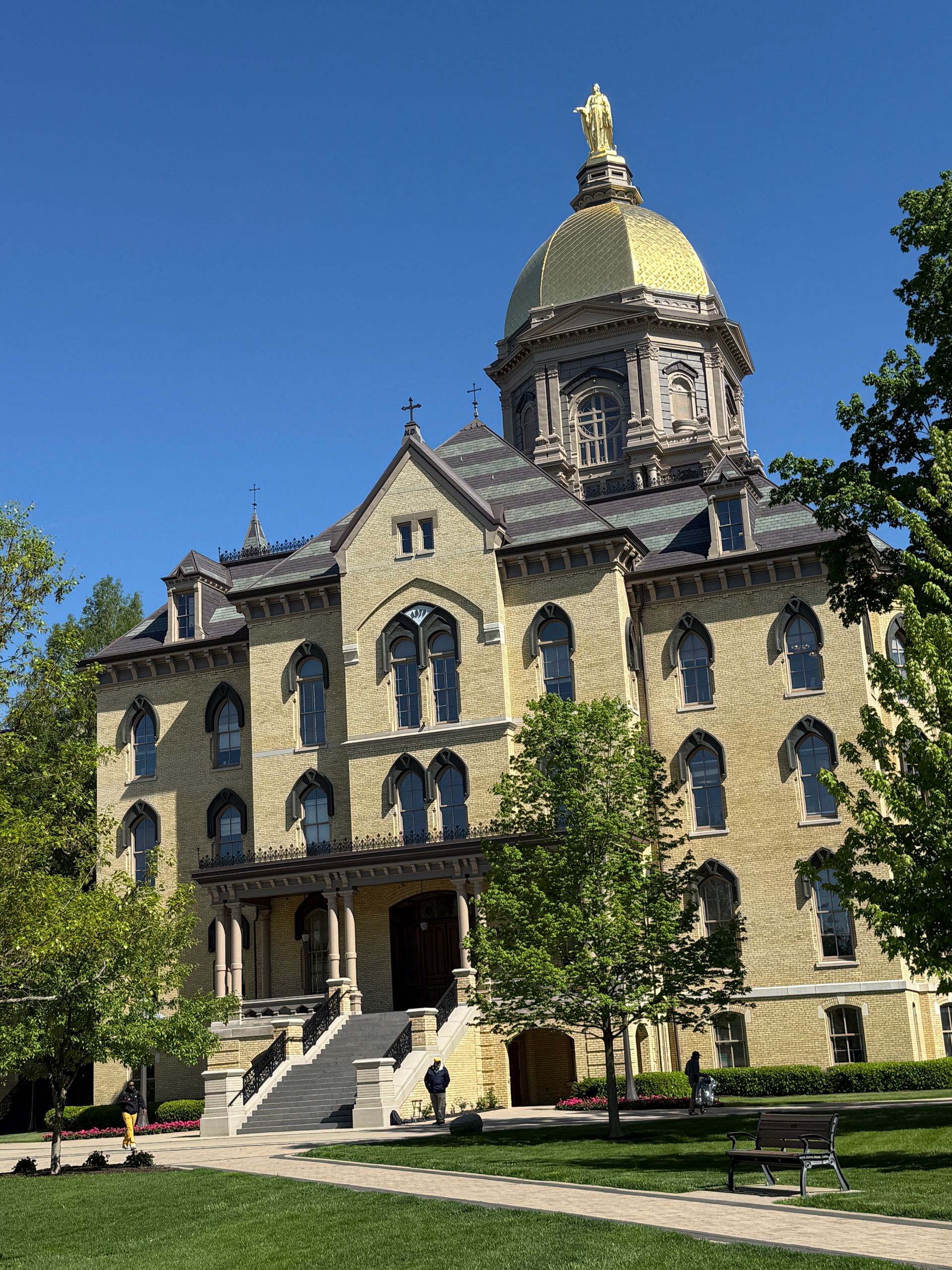
Founded in 1842 by Rev. Edward F. Sorin of the Congregation of Holy Cross, the University of Notre Dame is a premier Catholic research university dedicated to educating the whole person—mind, body, and spirit. With a global reputation for academic excellence and a campus steeped in tradition, Notre Dame’s mission is to develop scholars and leaders who are a force for good in the world. Academic Excellence and Opportunities Notre Dame offers undergraduates access to a broad range of academic programs through its seven colleges and schools: the College of Arts and Letters, College of Engineering, Mendoza College of Business, College of Science, School of Architecture, Keough School of Global Affairs, and the Alliance for Catholic Education. Students do not formally declare a major until the end of their first year, but they are encouraged to explore widely through the university’s core curriculum. The academic experience is both rigorous and personalized. First-year students are assigned academic advisors before arriving on campus and take part in a required First-Year Seminar. All students complete two theology and two philosophy courses as part of the core curriculum, which encourages critical thinking, ethical reflection, and a deep understanding of human experience. Options include classes such as “Theology and Evolution,” “Theology of Marriage,” and “Theology and Science.” Notre Dame is classified as an R1 research university, and undergraduates are strongly encouraged to pursue research early in their college careers. Approximately 89% of students participate in research or internships. The university offers more than 30 core research facilities and provides substantial funding support for student-led inquiry and faculty collaboration. Interdisciplinary learning is a growing priority. For example, students can now pursue a double major in Computer Science and Business across the Colleges of Engineering, Arts & Letters, and Mendoza, each with distinct requirements. While most students can transfer between colleges, entrance to Mendoza is highly selective and requires completion of designated first-year coursework. Distinctive Residential Life Residential life is central to the Notre Dame undergraduate experience. With a three-year on-campus living requirement, about 80% of students live in one of 32 single-sex residence halls, each with its own distinct identity, traditions, chapel, and Rector—who plays a formative role in students' spiritual and social development. Resident Assistants and senior Resident Coordinators also live in the halls and help maintain community life. Each hall sponsors a signature event—ranging from talent shows to charity fundraisers—and fosters a strong sense of belonging. Dorm Masses, often followed by social events like “Milkshake Mass,” are well-attended and build spiritual community. Dorms are single-sex, with limited cross-visitation during the week and extended access to common spaces on weekends until 2 a.m. Notre Dame does not offer Greek life; instead, residence halls serve as the heart of student life. Inclusive housing options such as the Fisher Hall undergraduate apartments provide welcoming spaces for LGBTQ+ students. The university emphasizes that it is a Catholic institution that welcomes all faiths and backgrounds. Faith, Service, and Values Faith and service are woven into the Notre Dame experience. The university hosts over 160 Masses each week, supported by more than 75 priests in residence, and each dormitory includes its own chapel. Students of all faiths are supported by Campus Ministry, which provides spaces for prayer, worship, and reflection across Christian, Muslim, Jewish, and other traditions. More than 80% of students participate in community service or service-learning, often through partnerships with the Center for Social Concerns or programs like the Summer Service Learning Program (SSLP) and International Summer Service Learning Program (ISSLP). These experiences reflect the university’s mission to form leaders who prioritize justice, compassion, and global solidarity. Campus and Community Life Notre Dame’s 1,250-acre campus is renowned for its beauty, community, and iconic landmarks such as the Golden Dome, Basilica of the Sacred Heart, and Touchdown Jesus. Located in South Bend, Indiana—a midsize city—students have access to a variety of local restaurants, shops, and recreational activities. About one-third of students bring cars (starting in the second semester of first year), and the campus offers free transportation to popular destinations like Trader Joe’s and Leaman’s Orchard, a favorite for apple and raspberry picking. Students can also take advantage of Notre Dame’s tri-campus partnership with nearby Saint Mary’s College and Holy Cross College. This collaboration allows students to cross-register for courses, participate in shared clubs and organizations, and access additional academic opportunities such as teacher certification. Notre Dame offers a robust array of extracurricular activities with over 500 student clubs, 26 NCAA Division I athletic teams, and vibrant intramural and club sports programs. The university encourages leadership, creativity, and connection through programs such as the Center for Social Concerns, Student Government, and campus arts and music ensembles. Admissions and Financial Aid Notre Dame’s holistic admissions process seeks students who are intellectually curious, authentic, and aligned with the university’s mission. The university is test-optional but encourages applicants to demonstrate academic readiness through coursework, AP/IB scores, or other achievements. A teacher recommendation from a core academic subject and a counselor letter are required. Students may submit a third letter only if it adds a new dimension to their application. Admissions readers look for intellectual spark, confident self-awareness (but not arrogance), and genuine interest in making a difference. Essays and the activities section are key opportunities to showcase personal curiosity and mission alignment. Notre Dame encourages applicants to reflect deeply on how they hope to be a force for good in the world. The university offers Restrictive Early Action and Regular Decision. Deferred applicants are encouraged to send a Letter of Continued Interest (LOCI), though additional recommendations are discouraged. Notre Dame is need-blind for all applicants and meets 100% of demonstrated financial need without loans. About 70% of undergraduates receive financial aid. Merit aid is extremely limited and competitive, with no separate application required.
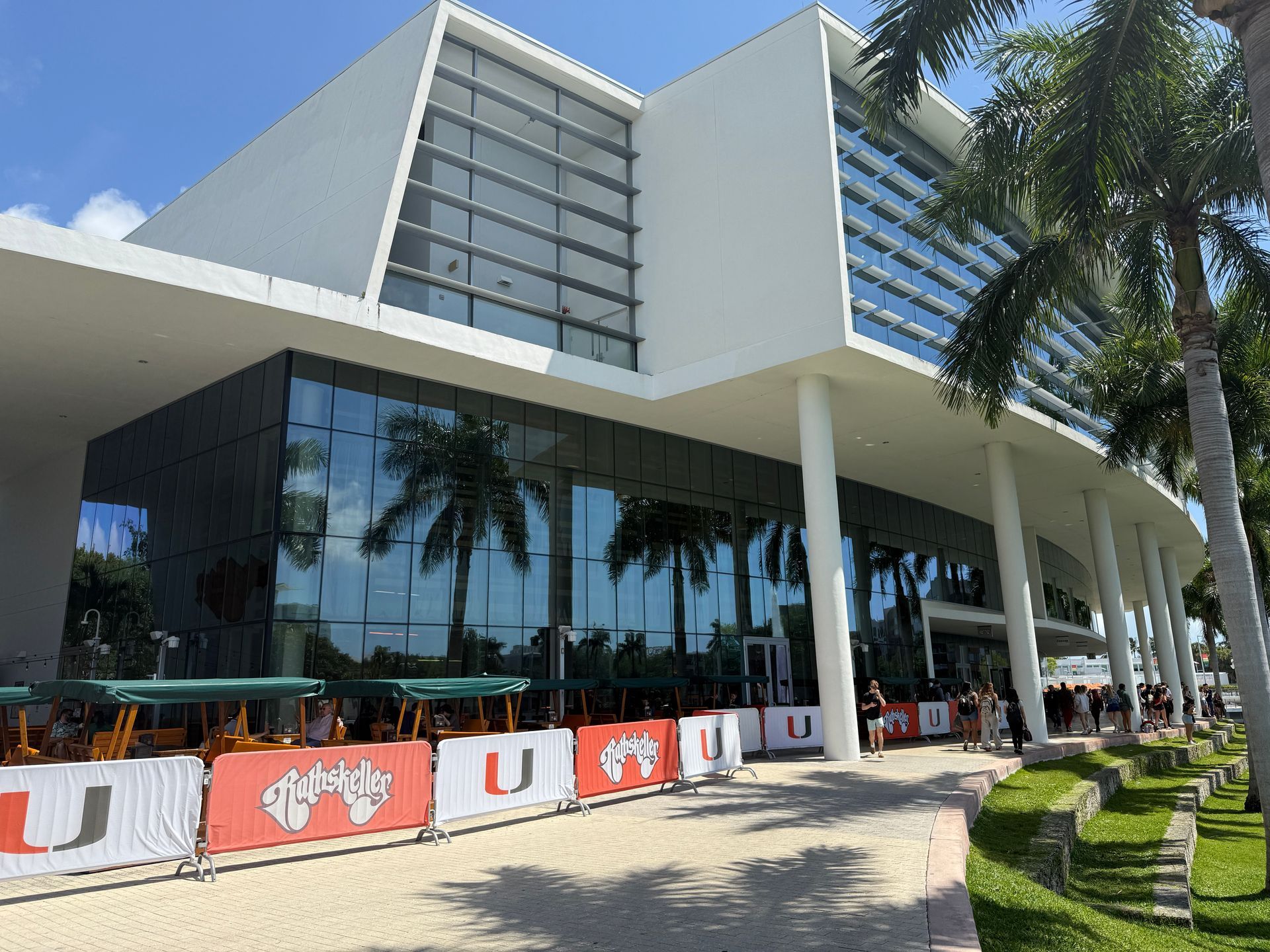
I spent my April Fool’s Day visiting the University of Miami with several of my IECA colleagues. We started the day with an information session geared toward interested high school students. Did you know that UM will celebrate its 100 th birthday next Tuesday? Founded in 1925, it has grown to be a Tier 1 research university with nine undergraduate colleges, serving roughly 12,000 undergraduate students. When you apply for admission to the university, you apply to one of the nine undergraduate colleges or undeclared in the College of Arts & Sciences. The School of Architecture, Frost School of Music, and Theatre Arts within Colleges of Arts and Sciences each require either a portfolio or an audition. The School of Nursing and Health Studies is a direct admit program, meaning that students are admitted directly into the nursing program, and it is extremely difficult to transfer into the program. Other colleges include the Herbert Business School, School of Communication, School of Education and Human Developments, College of Engineering, and the Rosenstiel School of Marine, Atmospheric, and Earth Science. All students are required to complete UM’s general education program which consists of taking three classes in 3 Cognates: STEM, People & Society, and Arts & Humanities. This is easy to complete as each student’s major will satisfy one of the Cognates, and it encourages students to pick up a minor or second major in a different area. UM encourages students to study abroad and offers 80 different programs in over 20 countries. Students are assigned a study abroad advisor that coordinates with their academic advisor to ensure a smooth transition between campuses. 70% of engineering students even study abroad- a very large number that is not possible in most universities. Research is also strongly encouraged and can be completed in subjects both in and out of your major. Students complete a research request form and are then paired with a faculty member for research as early as the second semester freshman year. The Toppel Career Center supports students with resume help, interview prep, free head shots, pre-professional track advisors, and career fairs each semester. They even have mini career fairs by college/major. Housing looks amazing and is organized by year: freshmen live in the new Centennial Village; sophomores in Century Village in apartment style housing, and upper classmen are predominantly in University Village on the edge of campus and near the Greek housing. Fun Facts: 1. Hurricane home football games are played in The Hardrock Arena, shared with the Miami Dolphins! Tickets are included in tuition and they run free shuttles back and forth from campus to the arena on game days 2. There’s a Metro Station across from campus. 3. Tons of dining options on campus including a “Without” section for those students with food allergies. 4. 25% of students are involved in Greek life but Rush is not until the spring semester. 5. There’s a free on-campus cinema that shows current releases. 6. All residential colleges have hurricane windows- just in case! 7. Market Wednesdays allow all types of food vendors to come sell their goodies to students- think acai bowls, smoothies, juices, food tents, etc. 8. Thursday mornings focus on Patio Jams- listen to musicians from the School of Music or other musicians as you stroll to classes. 9. There’s an on-campus hair & nail salon! 10. UM is home to “Launch Pad” an on campus ‘Shark Tank” where any student may pitch their business ideas to real investors.
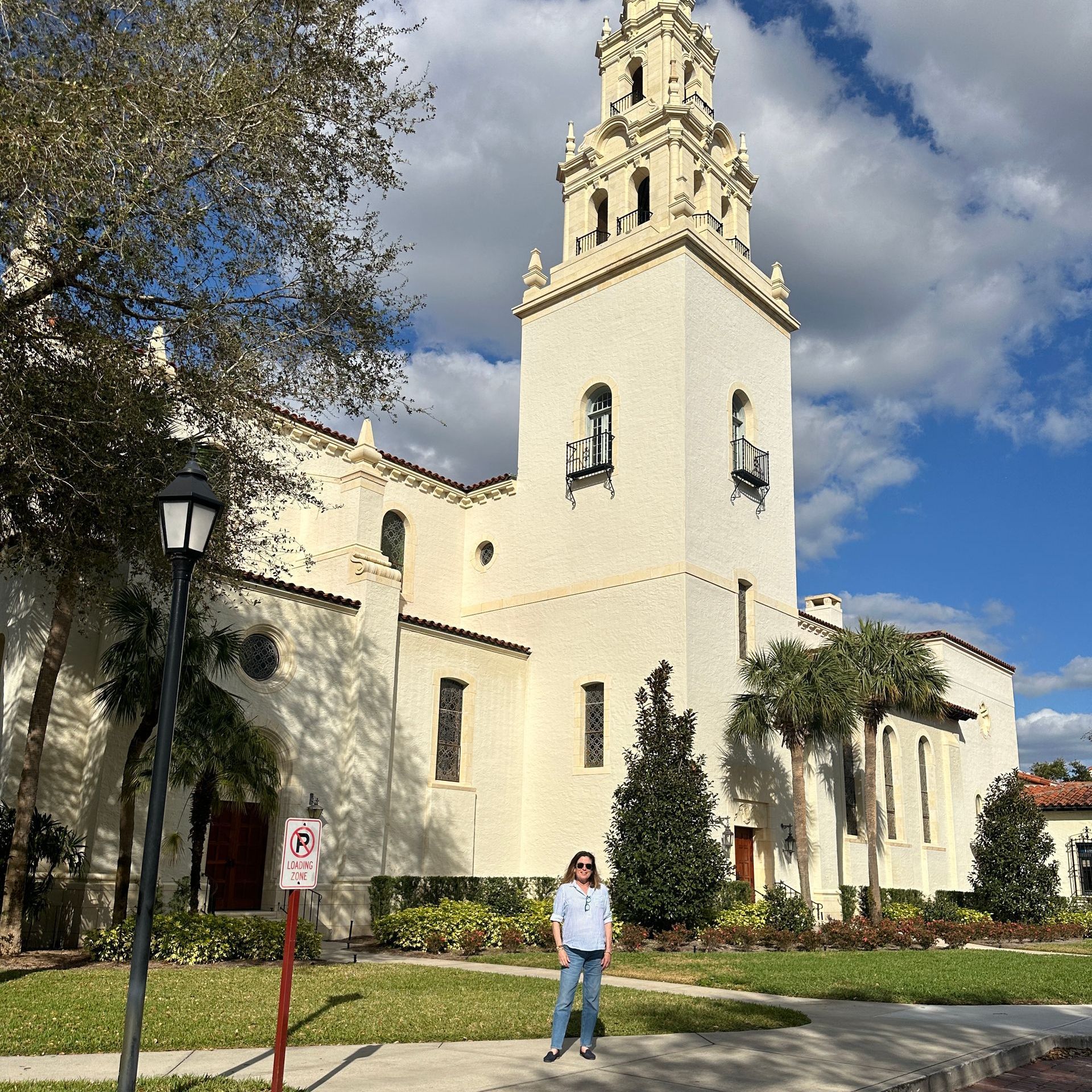
Located in Winter Park, Florida, Rollins College offers a vibrant undergraduate experience that seamlessly blends academic excellence with a rich social and cultural environment. Rollins’ mission “is to nurture global citizens and responsible leaders as they chart their own course to a meaningful life and productive career.” With a commitment to personalized education and a gorgeous campus setting on Lake Virginia, Rollins provides students with opportunities for growth, exploration, and community engagement. Academically, Rollins College boasts a diverse range of majors and programs designed to foster critical thinking, creativity, and interdisciplinary learning. Some of the most popular majors among students include Business Administration, Psychology, Communication Studies, Biology, and Political Science. Additionally, Rollins continuously introduces new academic majors and programs to meet the evolving needs of students and the job market, such as Environmental Studies, Social Innovation and Entrepreneurship, and Sustainable Development. The academic experience at Rollins is characterized by small class sizes, interactive learning environments, and close mentorship from faculty members. All students complete the 6 Rollins Foundations courses as general education requirements. The first is a freshman conference class with no more than 15 freshmen, the professor, and two upper class mentors. The final Foundation class consists of a capstone research project. Internships are readily available in near-by Orlando and about 70% of students study abroad at least once in their four years. Beyond the classroom, Rollins offers a vibrant social scene and downtown Winter Park has many fun shops and a great variety of restaurants. From student organizations and clubs to cultural events and recreational activities, there is always something happening on campus. The College Union Board (CUB) organizes a variety of events, including concerts, movie nights, and guest speakers, fostering a sense of community and connection among students. Greek life also plays a role in the social fabric of Rollins College, with several sororities and fraternities providing opportunities for leadership development, philanthropy, and social networking. While Greek life is present on campus, it is just one of many options for students to get involved and make meaningful connections. Culturally, Rollins College celebrates diversity and inclusion through various initiatives and programs. The Cornell Fine Arts Museum, located on campus, offers students access to world-class art collections and exhibitions, while the Bach Festival Society of Winter Park brings classical music performances to the community. Additionally, Rollins hosts cultural festivals, film screenings, and lectures that highlight the global perspectives and experiences of its students and faculty. The college provides a variety of housing options. First-year students typically reside in one of the traditional residence halls, which offer double and triple occupancy rooms, communal bathrooms, and common areas where students can socialize, study, and relax. Upperclassmen have the option to live in apartment-style housing, such as Lakeside Neighborhood or Holt Avenue Apartments. We saw lots of students enjoying the pool area next to the dorms and many dorms offer stunning views of the lake. In summary, Rollins College offers a dynamic liberal arts undergraduate experience characterized by academic rigor, social engagement, and cultural enrichment. With a commitment to innovation and excellence, Rollins continues to provide students with the knowledge, skills, and experiences they need to thrive in an ever-changing world.
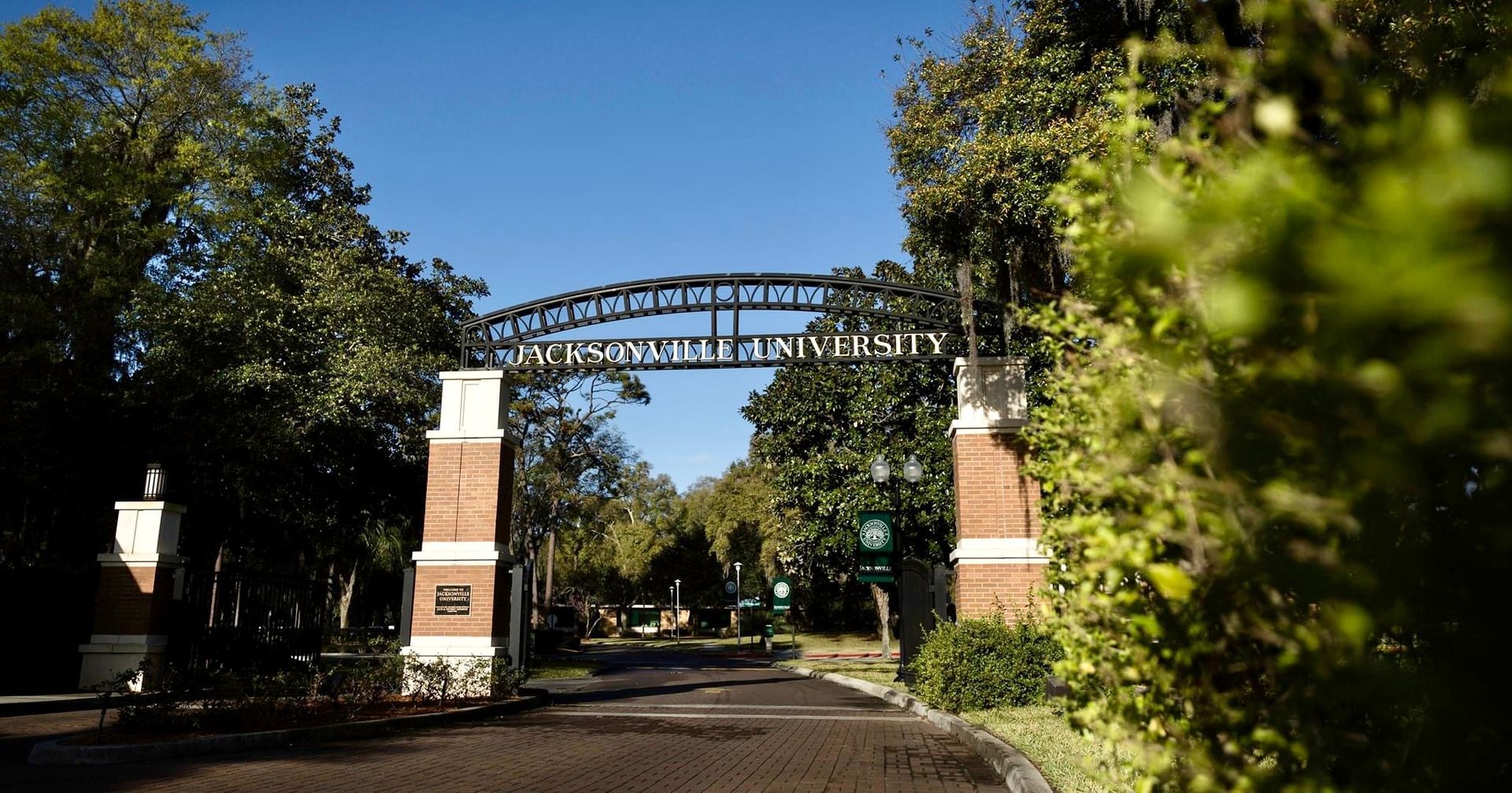
This month I participated in a Counselor Fly-In at Jacksonville University and left knowing I’d found a hidden gem! Jacksonville University (JU) is a vibrant and dynamic institution located in Jacksonville, Florida, known for its commitment to academic excellence, student success, and community engagement. JU cares so much about the student experience that each student is given the University President’s cell phone number and permission to call with any issues! President Cost believes that creating a strong and inclusive culture is the key to a successful university. He’s focused on building community and corporate partnerships to strengthen academic programs and increase student’s access to internships and other experiential learning opportunities. He tears down walls between colleges to encourage interdisciplinary study and exploration. His team also focused on residential life and improved on-campus dining, dorms, and pool and recreation areas. Undergraduate Colleges and Schools: College of Arts and Sciences: The cornerstone of JU's academic offerings, the College of Arts and Sciences provides a strong foundation in the liberal arts. Students engage in interdisciplinary learning, fostering critical thinking and creativity. The most popular majors include Psychology, Biology, and Marine Sciences. We joined the Marine Science’s mobile classroom for a trip from our hotel down the St. John’s River to JU and what a treat that proved! JU's commitment to environmental stewardship is evident in the Marine Science Research Institute. The institute focuses on marine research, conservation, and education, providing students with hands-on experiences in a coastal environment. Davis College of Business & Technology: JU's Davis College includes the schools of business, engineering & technology as well as aviation & military sciences. Throughout the college the emphasis lies on experiential learning, entrepreneurship, and ethical leadership. Most popular programs include Business Analytics, FinTech, Cybersecurity, Data Science, Engineering, as well as Aviation & Aviation Management. Linda Berry Stein College of Fine Arts & Humanities: The College of Fine Arts at JU nurtures creativity and artistic expression. During our visit we were treated to a River Tones performance and a chance to watch students dance in a choreography class. We were struck with the talent and near-conservatory level of the arts. Portfolio submission is highly recommended for admission into the visual arts and auditions are required for the performing arts. They are starting a new program next year in Music Therapy. We asked about typical career paths and were told that a few go on to LA or Broadway tours each year while the vast majority stay in Florida and join Disney or perform on cruise ships. Brooks Rehabilitation College of Healthcare Sciences: This college is at the forefront of healthcare education, offering programs in nursing, health informatics, and other health-related fields. The nursing program offers 50 freshman a direct admit pathway where they then complete core requirements before beginning the 28-month nursing program. If students are not accepted direct admit, they may enter the Health Sciences major and apply after completing the core nursing requirements. In the last three years the pass rate for the NCLEX averaged 96.8 and last year 100% of their students passed in their first sitting! Cost Honors College: In the fall of 2024, Cost Honors College will officially open to 450 honors students who represent the best and brightest of each of the four classes. They are using a Living Learning Community model, the first of such housing at JU. Residents will take some classes there, dine at their own in-house restaurant, and enjoy a free game room and laundry facility. The dorm sits on the north side of the campus, but honors students also have access to a 440 sq. foot Honors Lounge in the heart of campus. Students are strongly encouraged and supported in creating their own “Pathway of Distinction” by pursuing cross-disciplinary majors, minors, and certificates with ultimate career paths as their goals. Jacksonville University offers admissions on a rolling basis and strongly considers “demonstrated interest” as a factor in their admission decision. They track applicant’s visits both in-person and virtually, and award $1000 grants for each visit. Every accepted student receives a merit scholarship ranging from $14k-$36k with the highest awarded to those students selected for the Honors College. $65,780 is the full cost of attendance but students may stack merit and grant awards. The University has a Test Optional Policy with the exception of Nursing, and the Honors College. Testing is encouraged for Engineering and Aviation. With the recent addition of a Law School and the forthcoming Medical School, JU is poised to play a pivotal role in shaping the future of legal and healthcare professionals in the region and beyond. The university's commitment to holistic education, experiential learning, and community impact continues to make it a standout institution in the academic landscape.
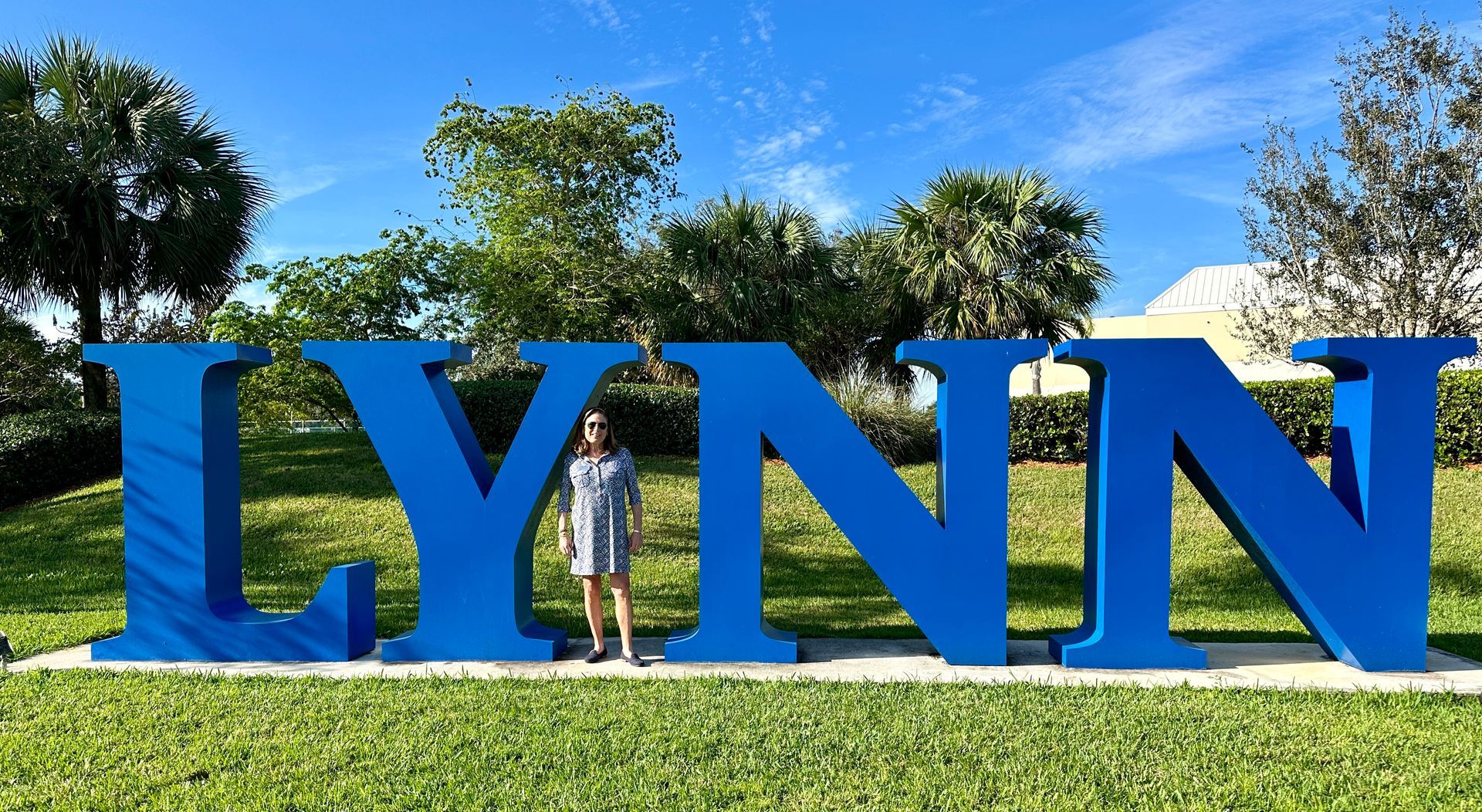
I attended an informative Counselor Breakfast at Lynn University this morning. Their mission is “to provide innovative, global, and personalized education that enables students to realize their potential”. Lynn’s core curriculum, called the Dialogues, is designed to teach students to think critically, communicate effectively and solve problems creatively. In the first two years students take all five of The Dialogues each year; these include Self & Society, Belief & Reason, Justice & Civic Life, Quantitative Reasoning, and Scientific Literacy. Each of these courses is designed to build effective skill sets and includes public speaking at least twice in each class. Lynn uses a “Block Schedule” where students take 1-2 classes per four-week term and there are four terms to each academic year. They began this scheduling during Covid and found it so well received that they are now in their 4 th year of the program. All students also receive an iPad to use throughout their time at Lynn. This iPad is completely embedded with all the textbooks and other educational material the students will need. Students are encouraged to explore innovative topics and ideas with opportunities for internships, workshops, and experiential learning. Strong students earn the opportunity to graduate in 3 years or stay for a 4 th year and complete a Master’s! While 50% of students enroll in the College of Business Management, they also offer several unique educational opportunities. At the College of Aeronautics, 98% of students pass their FAA Pilots License Exam. Classes are taught at the Boca Raton Airport and every class is more like a lab. Several years ago, Lynn bought a nearby art college and now offers a College of Communication & Design with majors in graphic design, game art, film, advertising, public relations, and more. Lynn also has a College of Education as well as a College of Arts & Sciences, but one little known gem is their Conservatory of Music. This is their most competitive college, and every student receives a full-tuition scholarship! Lynn University is also famous for their Institute for Achievement & Learning. 15% of current students use the for-pay Institute and it is available for all students. The Institute provides comprehensive student support including couching, tutoring, and mentorships. While the internationally recognized program was designed for to promote student success among those with learning differences, they now no longer require a psychoeducational evaluation. If you’ve read this far, you’re due for some fun facts! · With 25 national championships, the NCAA Division 2 Fighting Knights are among the most successful in college athletics. · 95% of students receive merit aid that ranges between $10k-$22k per year! · 231 average days of sunshine a year! · 70 miles of beautiful beaches are a stone’s throw away. · Campus is served by 3 international airports within a 60-mile radius.
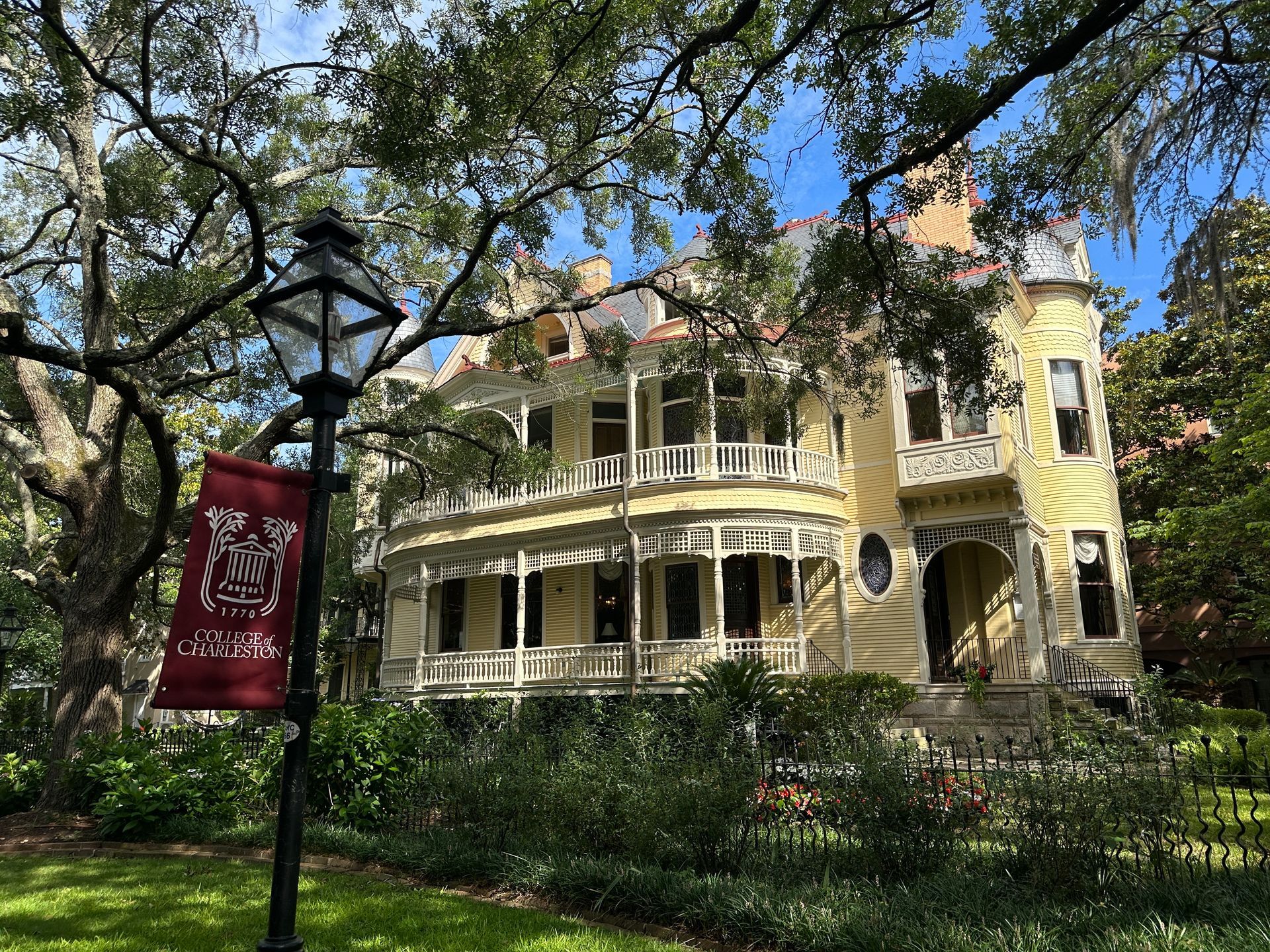
On a trip to Charleston last week for my niece’s wedding, I devoted a morning to visiting The College of Charleston (CofC) and what a treat it proved! The stunning college is built into the gorgeous historic district of the city with moss laden oaks rising tall among the Victorian buildings and red cobblestone streets. The campus center, Cistern Yard, hosts matriculation and graduation and has recently earned a designation as a National Historic Landmark and National Arboretum. CofC serves approximately 9230 undergraduates, the large majority of whom are female. It is a mid-sized public institution about 1/3 the size of USC, similar in size to William and Mary but less rigorous. Students complete a core liberal arts curriculum beginning with freshman year, choosing between a Learning and Living Community or a Freshman Seminar. Seminars are designed to introduce fun relevant topics while also serve as a freshman writing seminar. The campus vibe seemed cooperative and faculty doors wide open to students during office hours. The Pre-med track earns especially strong marks with many biology and chemistry majors doing research and/or shadowing at the Medical University of South Carolina down the street. Fun Fact: CofC has the largest telescope in South Carolina, and it is open for student use. Business and communications prove the most popular majors, while arts management, public health, and marketing are also gaining in popularity. The Honors College enrolls approximately 700 students and our tour guide strongly suggested all should apply. Honors students earn merit scholarships, live in upgraded housing, gain early access to course selection, and enjoy additional study abroad opportunities. While CofC does not offer football, it still enjoys the southern school rah-rah campus culture. Baseball and basketball games are popular and approximately 25% of students “Go Greek” and join one of 8 fraternities or 8 sororities. Most freshman and sophomores live on campus and utilize the three dining areas on campus. You’ll also find lines at the campus Chick-fil-A and Starbucks. I think many would agree that CofC, the movie set for The Notebook and Dear John, would prove a fine place to learn and grow for their college years. Charleston also offers a vibrant port city with numerous internship and job opportunities, not to mention delicious southern food and charm.
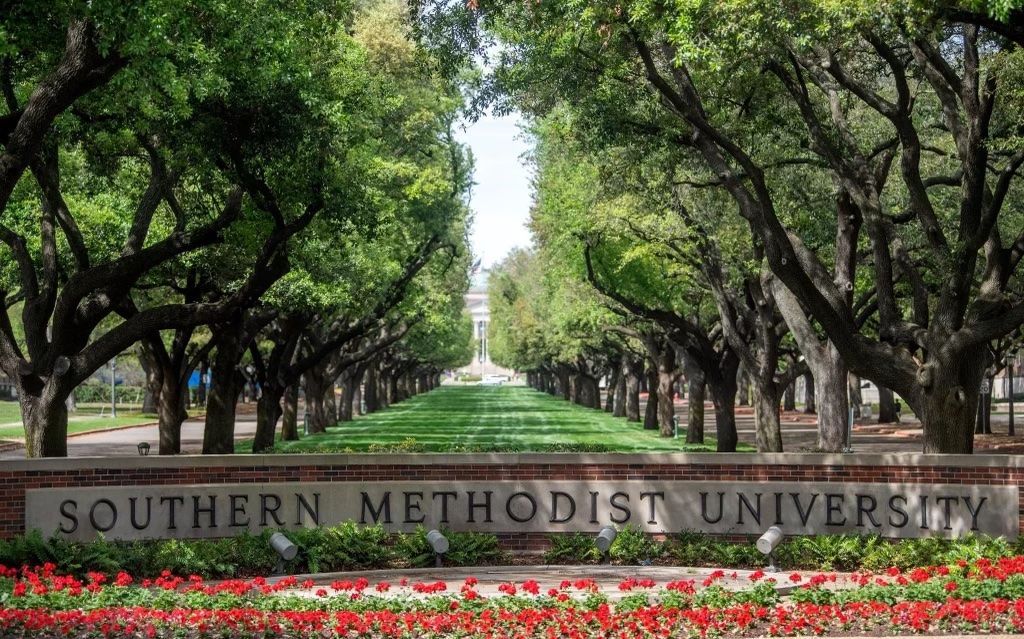
If you’re drawn to a “rah, rah” Southern university D1 football culture with strong Greek Life, yet access to smaller classes and professors that care, SMU may be for you! On my recent visit, I felt the energy and go-getter atmosphere. SMU’s gorgeous campus lies five minutes from central downtown Dallas in an area called University Park. Being so close to one of the hottest job markets in the country, internship opportunities abound. In fact, over 20 Fortune 500 Companies are based in Dallas and over 65,500 alumni work in the DFW area giving SMU students a huge leg up in the jobs market upon graduation. Some of their strongest and most interesting programs include the Cox School of Business, the Lyle School of Engineering, the Simmons School of Education and Human Development, and the Meadows School of the Arts. Cox is a very competitive direct admit process where students indicate their interest in Cox as their first choice of study. If they are not selected to Cox, they may still be accepted to SMU and will have the opportunity to minor in business. There are a handful of internal transfers available but extremely difficult to secure. Finance is the most popular major but new programs in Real Estate and Business Analytics and Supply Chain Management are gaining in popularity. The Lyle School of Engineering hosts its own supercomputer and the first LEED Gold Standard Building for Environmental Design. The school offers undergrads numerous research opportunities and runs a co-op program with local engineering and technology companies. The school also prides itself in its high ratio of women as students and faculty. The Simmons School of Education and Human Development boasts one of the strongest sports management and physiology programs in the country. Sports are huge in Dallas and SMU takes full advantage. Meadows School of the Arts is a dual admission process requiring students to submit their portfolio/or audition. It is one of the few conservatory style degree programs in the country that allow students to double major outside of the arts. Many students opt to combine their art degree with a minor in business at Cox….no need to be a starving artist they say! Fashion media, communications, and advertising are also well-respected majors within the school. All students complete a liberal arts Common Curriculum (CC). In addition to the southern sports culture, there is also a strong emphasis on the Methodist values of “teaching and learning for the greater good.” Students are encouraged to give back to the local community. All students live on campus for their first two years in 11 residential commons with faculty, their families, and pets. The faculty host weekly events and the residential commons host events and compete with one another at the end of the year for the residential common cup…great fun had by all!
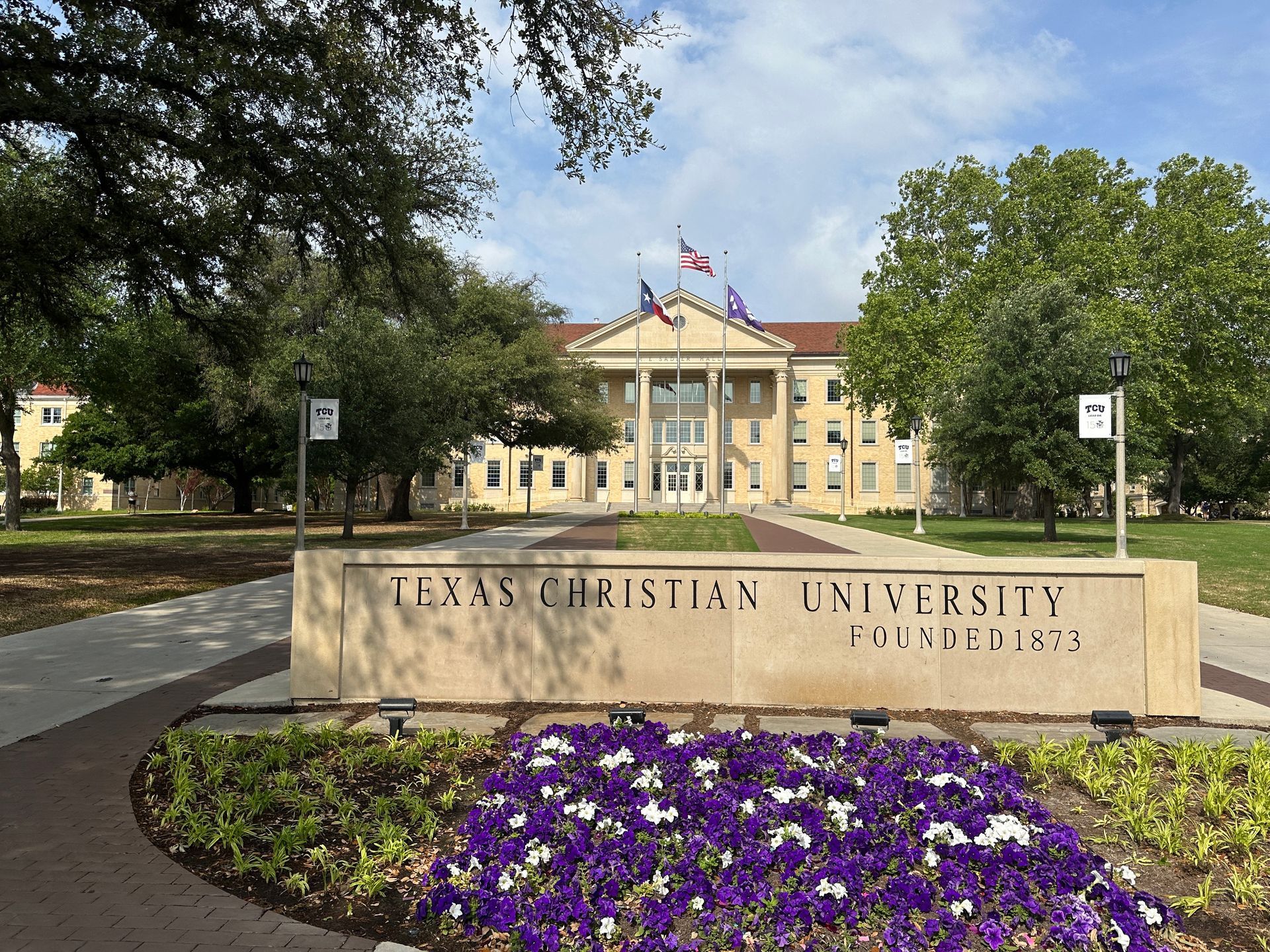
This week I headed for the great state of Texas with my first stop being TCU. Texas Christian, at its core, is a liberal arts college serving 10,020 undergraduates across nine colleges: AddRan College of Liberal Arts (the largest), Neeley School of Business, Bob Schieffer College of Communication, College of Education, College of Fine Arts, Harris College of Nursing & Health Sciences, College of Science & Engineering, John V. Roach Honors College, and Burnett School of Medicine. Business, Communications, and Nursing & Health Sciences are the most popular. Neeley School of Business has a couple of unique programs, the first being the BNSF Neeley Leadership program in which participants complete a three year, five course program devoted to developing strong global leaders. The second unique program is the Neeley Fellows Program offered in conjunction with the John V. Roach Honors College and dedicated to providing experiential curricular and co-curricular programming to the best and brightest of Neeley scholars. Another college with some interesting programs is the College of Science and Engineering. In addition to the usual offerings, the college houses Geological Studies, Nutritional Sciences, and Ranch Management. At TCU, classes are taught only by professors and all offer office hours. Faculty pride themselves in getting to know their students and many offer research opportunities to undergraduates and/or help find them internships. An internship scholarship program helps support unpaid internships. Students are required to complete a core curriculum, but many requirements can be satisfied with a strong AP exam. After this year’s football season, everyone knows the mighty Horned Frogs, the smallest of the NCAA Division 1 Big 12. Applications increased dramatically after this year’s run at the title! Students are given free tickets to all home games and tailgating is serious stuff! All students live on campus for their first two years. Campus is a beautiful mix of mostly neo-Georgian and some modern buildings. While Greek life is big there’s also plenty to do off campus in Fort Worth and the downtown stockyards. In fact, students can use their meal plan dollars at many off-campus restaurants! 48% of students hail from Texas and over 80% receive need-based and/or merit financial aid. Despite the name, over 60 faiths are represented on campus. I left TCU impressed by its offerings and the highly motivated, engaged student body.
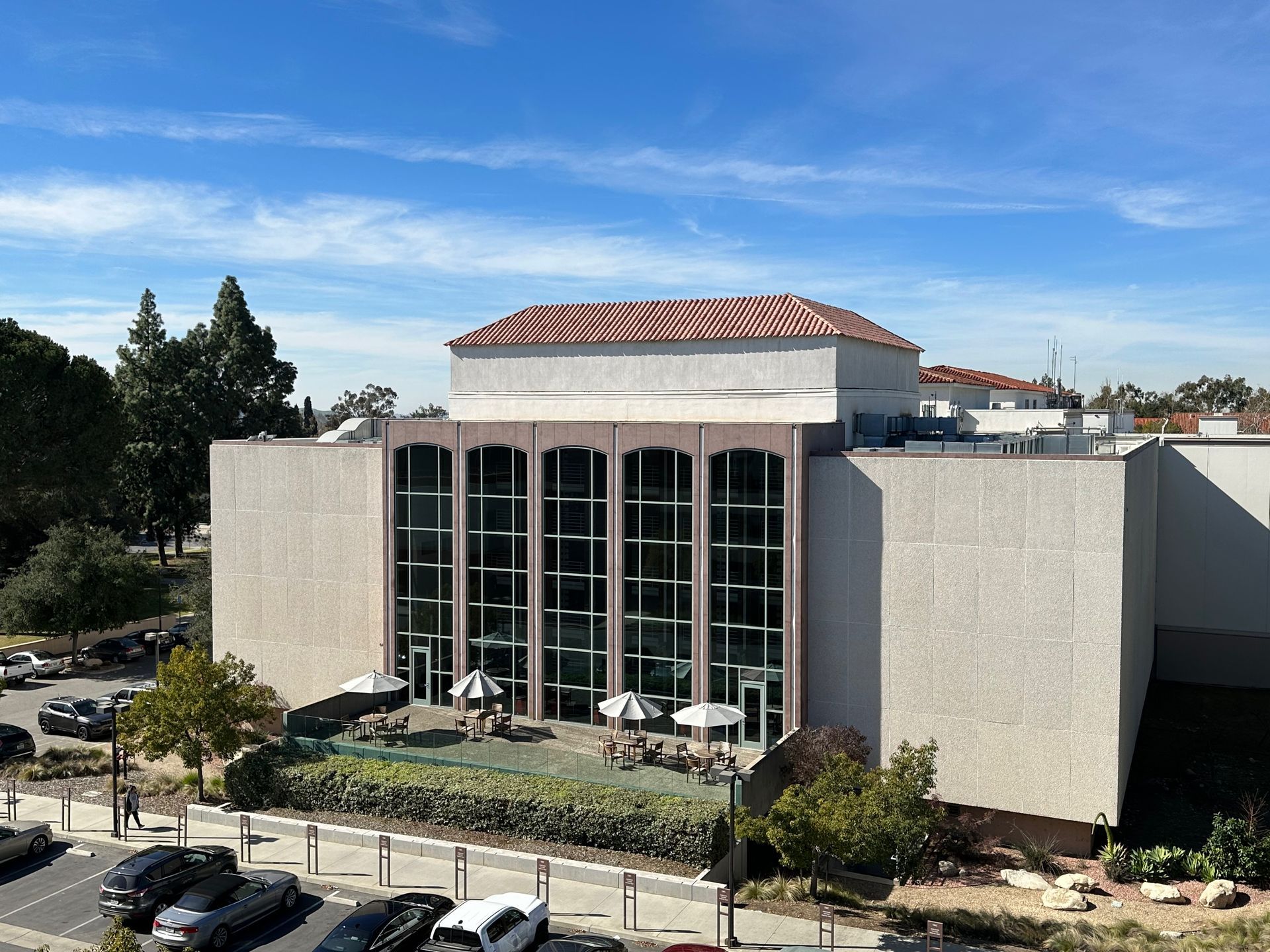
Claremont McKenna College (CMC) was the third of my Claremont visits and showed yet another distinctive culture. The CMC mission is “to educate it’s students for thoughtful and productive lives and responsible leadership in business, government, and the professions.” As such, practical learning takes center stage with an emphasis on internships and research in one of thirteen different research institutes at CMC. 95% of CMC students complete at least one internship enabled by $2.3 million of funding to support students in unpaid internships and experiences. CMC Athenaeum arranges guest dinner speakers from all fields four days a week throughout the school year. Students dress in business attire, enjoy the chance to network during the free three-course dinner, and the student who signs up first earns the opportunity to dine at the guest speaker’s table. CMC’s liberal arts curriculum focuses on building leaders, invoking spirited and open debate, and collaboration. The most popular majors include economics, government, data science, psychology, politics, international relations, history, and the environment. Freshmen take a first year writing class as well as a humanities seminar. All students complete general education requirements and culminate their studies with a senior thesis. CMC offers 140 study abroad programs as well as internship programs in Washington DC and Silicon Valley. Students intern during the day and complete CMC classes in the evenings. The culture bleeds pre-professional tracks and 80% of students work for a few years before many head to graduate school. My gut suggests that CMC leans the least liberal (rather than most conservative) of the Claremont Colleges. Fiske Guide speaks about a “bro culture” but I didn’t witness it. I saw purposeful, dedicated students who seemed really focused on their study groups and professional endeavors. The tour didn’t speak much about the social life, but students seemed focused and involved. I’ve loved my time exploring this consortium and wish I’d had time to tour Pomona College and Harvey Mudd.
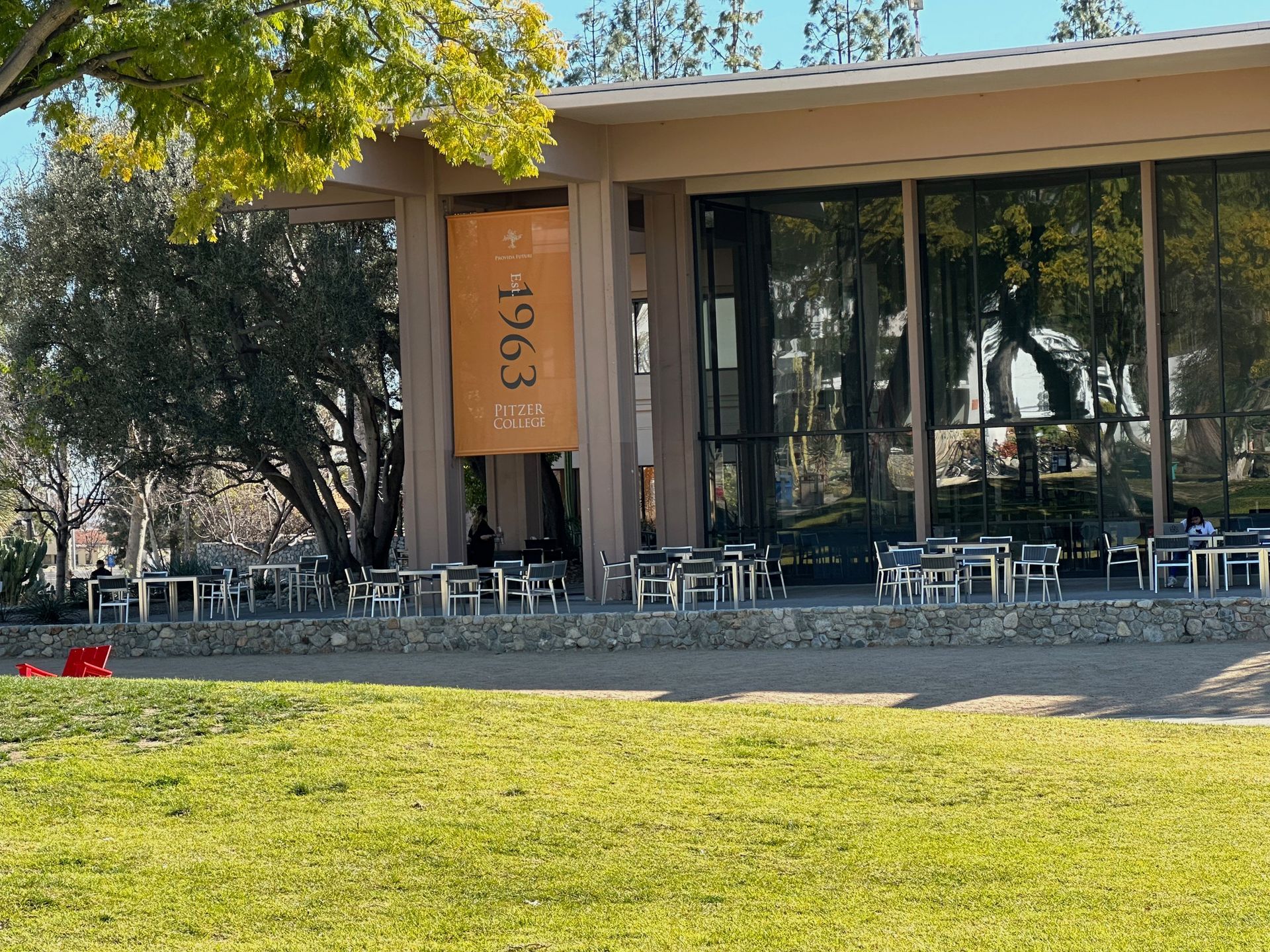
Today I visited Pitzer College, another college within the Claremont Consortium of Colleges. Pitzer College’s core values permeate all aspects of academic and student life. These core values include social responsibility, intercultural understanding, interdisciplinary learning, student engagement, and environmental sustainability. Arguably, Pitzer is the most progressive of the Claremont Consortium. This top ranked liberal arts college of 1200 students emphasizes a flexible and innovative curriculum where students are encouraged to design their own interdisciplinary major. The most popular majors include environmental analysis, secular studies, human biology, political studies, and global/local studies. A Mathematical Economics major and an Introduction to Public Health are some new additions to the curriculum. Civic engagement and social justice form cornerstones of the Pitzer experience. Every committee on campus sends representatives to the Pitzer College Student Senate which meets weekly to govern campus life. The Senate even lends a hand in the hiring, firing, and tenure of faculty. Pitzer leans the most left of the Claremont colleges. Some traditions include spray painting on the “Free Wall” as an expression of student activism. Free speech reigns and no one is permitted to erase what is written. With one of the core values of the college being sustainability, many of the buildings are LEED certified, native plants flourish throughout campus, there’s a student run garden, a farm to table student run café, and a chicken coop giving students the freshest of egg sammies! I love how each of the Claremont College Consortium colleges have a unique culture and offer so much excellence for diverse and talented students.
